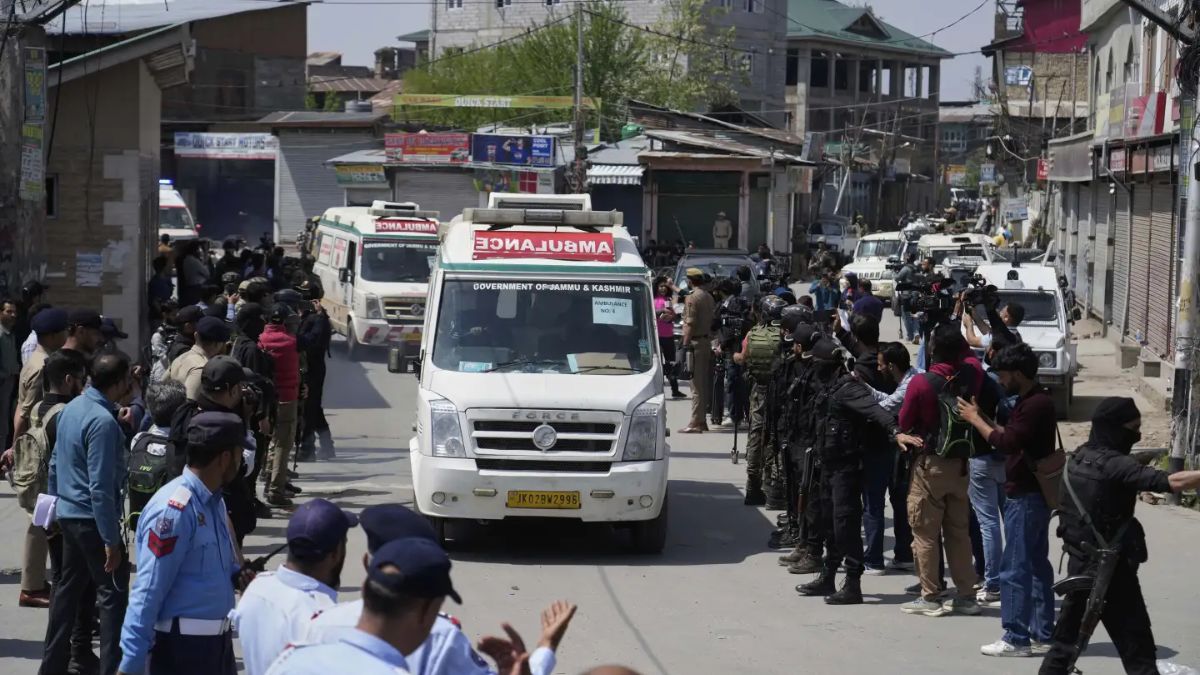In the past decade or so, Pakistan has appeared to have become marginal in India’s grand scheme of things.
Other than responses to Pakistan’s statements at the United Nations (UN) and occasional mentions of the country in statements on terrorism, India in recent years barely mentioned Pakistan and gave the impression that the country had stopped being a central concern.
The Pahalgam attack, however, is a reminder that Pakistan continues to be the principal external threat to India’s national security and it would be a mistake to think it’s weak, said counter-terrorism expert and author Abhinav Pandya.
“Pakistan will always have a central place in India’s national security concerns. It is the only country that can carry out attacks like Pahalgam inside India. It has penetrated the Indian society deeply and has deep assets and sleeper cells that are found to be involved in incidents from time to time. It takes great pride in the fact that it has bogged down India despite being much smaller in size and economy,” said Pandya, the founder and head of think tank Usanas Foundation.
In Jammu and Kashmir’s Pahalgam, terrorists killed at least 26 people —mostly tourists— on Tuesday. A group that identifies itself as The Resistance Front (TRF) claimed responsibility for the attack. The TRF is a cover that Lashkar-e-Taiba (LeT) uses to give an impression that a homegrown organisation —not a foreign, Pakistan-based entity like LeT— is carrying out attacks inside Kashmir.
‘Pakistan is in perpetual religious war with India’
The Pahalgam attack comes days after a vitriolic speech by Pakistani Army chief General Asim Munir in which he went on a tirade against Hindus and hailed Pakistan as the only nation in the world founded on the basis of ‘kalma’ — a declaration of faith and serves as the allegiance to God in Islam.
In an interview with Firstpost, counter-terrorism expert Pandya said that Pakistan has always looked at India with a religious lens and “Munir’s audacity to say that Pakistan is the only nation in the world founded on the basis of kalma shows that the idea of a religious war continues to drive their conflict with India”.
Impact Shorts
More ShortsPandya told Firstpost, “Pakistan is in perpetual religious war with India. India may be a secular state, but Pakistan has always considered India to be a Hindu state and that’s why they carry out killings in the name of religion in Kashmir and elsewhere. The religious divide, a sense of racial superiority, and the unfulfilled agenda of the Partition continue to drive Pakistan. Pakistan fought four wars not over territory but because of a jihadist war on India.”
In his speech, Munir referred to the Partition and drew a clear distinction between Hindus and Muslims.
Munir said, “Our forefathers thought we are different from Hindus in every possible aspect of life. Our religions are different, our customs are different, our traditions are different, our thoughts are different, our ambitions are different. That was the foundation of the two-nation theory that was laid there. We are two nations, we are not one nation."
Munir went on to say that the “story of Pakistan should never be forgotten” and “you have to narrate Pakistan’s story to your children so that they don’t forget it when our forefathers thought we were different from Hindus in every possible aspect of life”.
Pandya, a specialist on terrorist groups such as the Jaish-e-Mohammed (JeM), says that Pakistan is now looking forward to replicating the Kashmir playbook in other parts of the country by capitalising on the brewing pan-Islamist sentiment in India.
“There is a fundamental misreading among many regarding Kashmir. The issue is not the lack of development but radicalisation and the prevalence of jihad. For a long time, Pakistan has already had a deep penetration in the Indian society,” said Pandya.
“Now, as pan-Islamism is finding increasing support across India that we see in the form of rising support for pan-Islamist causes like the Palestinian groups, Pakistan is looking for an opportunity to capitalise on this and cultivate more assets for more attacks in more places across the country. It will be a mistake to believe Pakistan to be weak,” says Pandya, who has authored books ‘Inside the Terrifying World of Jaish-e-Mohammed’, ‘Terror Financing in Kashmir’, and ‘Radicalization in India: An Exploration’.


)

)
)
)
)
)
)
)
)



